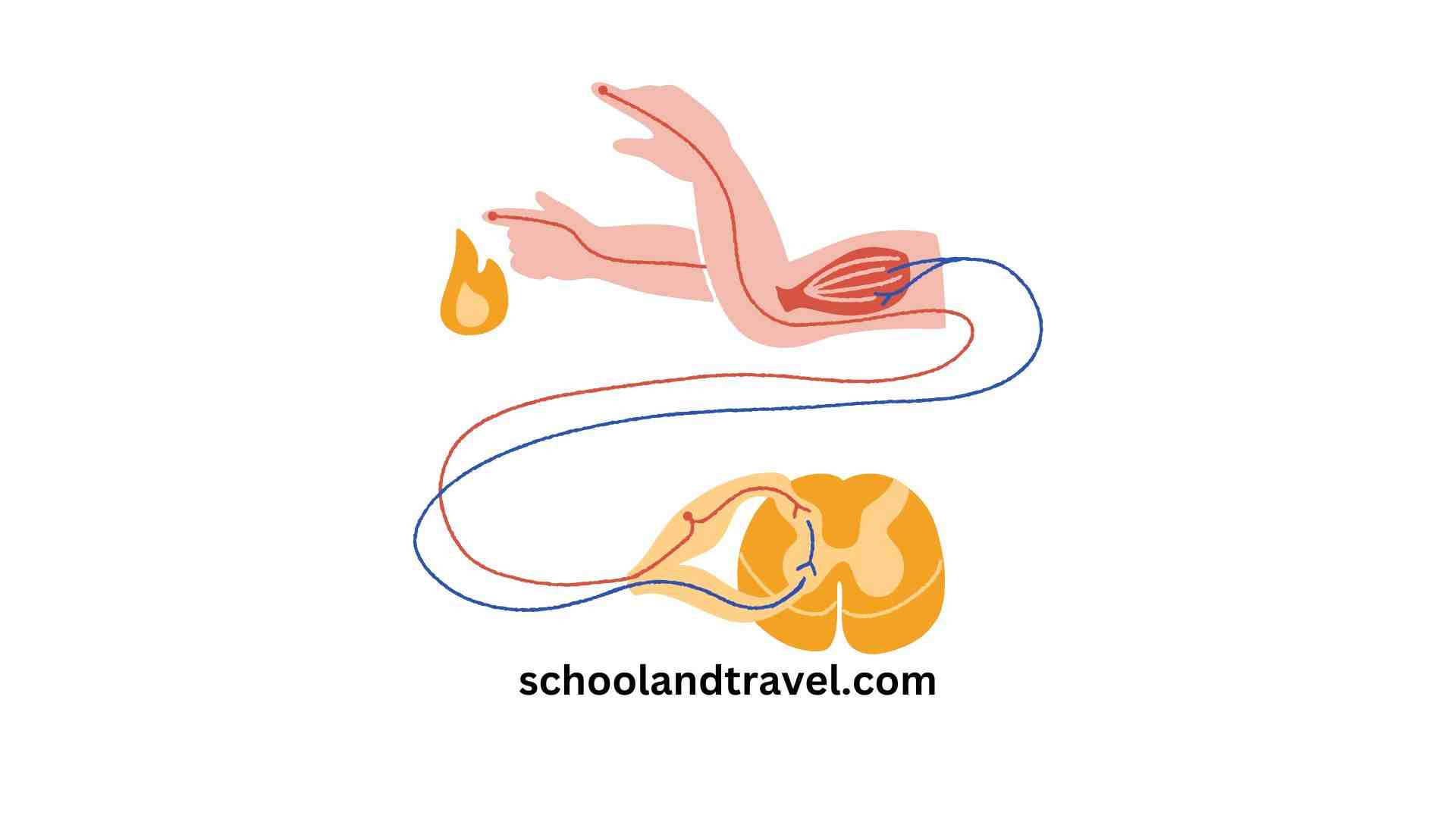Reflexology treatments are becoming more common and more popular. This is mostly due to the fact that it is well known that it can help the body rest deeply.
Numerous research studies conducted in the United States and internationally have shown evidence suggesting the potential advantages of reflexology, with a specific focus on pain reduction, relaxation enhancement, and alleviation of psychiatric problems, including anxiety and depression.
Let’s dive in and discover what it takes to become an expert reflexologist who can make a difference in people’s lives by improving their health.
What is Reflexology?
Reflexology is a comprehensive form of therapy that encompasses the application of targeted pressure to precise anatomical locations on the feet, hands, and ears.
These points, commonly referred to as reflexes, are hypothesized to be associated with various organs, glands, and physiological systems within the body.
Reflexologists endeavor to enhance equilibrium and overall well-being in the body by stimulating these reflexes.
Reflexology operates under the fundamental premise that the human body is intricately interrelated, such that targeted manipulation of specific areas can effectively activate the body’s inherent healing mechanisms.
Who is a Reflexologist?
Reflexologists are practitioners who engage in the therapeutic practice of applying focused pressure to specific anatomical points located on the feet, hands, and ears.
In addition to the hands or ears, practitioners occasionally apply reflexology techniques to induce relaxation.
However, it is worth noting that foot reflexology remains the predominant form of treatment.
Reflexology involves the targeted stimulation of specific regions of the foot to address corresponding areas of the body.
Benefits of Reflexology
1. Stress Relief:
Reflexology is recognized for its capacity to elicit profound relaxation and alleviate tension.
Reflexologists can provide a calming effect on the nervous system, alleviate tension, and enhance overall well-being through the manipulation of reflex points.
Moreover, the stress relief process entails the elimination of internal strains inside a material, typically achieved through applying heat to a level that facilitates its easy deformation.
2. Improved Circulation:
The practice of reflexology is believed to enhance the circulation of blood and lymphatic fluids in the human body by stimulating reflex points.
This phenomenon can lead to greater oxygenation of tissues, improved delivery of nutrients, and more efficient elimination of waste products.
3. Pain Reduction:
Reflexology is a helpful method for alleviating pain and suffering associated with various diseases, such as migraines, arthritis, and menstrual cramps.
Reflexologists possess the ability to mitigate pain and stimulate the body’s healing mechanisms by strategically focusing on distinct reflex points.
4. Enhanced Relaxation and Sleep:
The practice of reflexology has been found to have potential benefits in enhancing sleep quality through its ability to induce calm and alleviate anxiety.
Numerous individuals have reported a notable sense of deep relaxation and enhanced sleep patterns after engaging in a reflexology session.
5. Support for Overall Well-being:
Reflexology is a comprehensive therapeutic approach that seeks to reinstate equilibrium and coherence within the human body.
Reflexologists can facilitate the body’s innate healing mechanisms and enhance general wellness through the manipulation of reflex points.
Does Reflexology Work?
The first of the basic principles of reflexology is a belief that the feet, hands, and ears serve as microcosms representing the entirety of the human body.
Each reflex point is widely believed to correspond to a distinct anatomical region, such as the cardiovascular system, hepatic system, or vertebral column.
Through the application of pressure on specific spots, reflexologists can facilitate the release of tension, enhance circulation, and reinstate the harmonious flow of energy inside the body.
Reflexology is frequently employed as a supplementary therapeutic approach to enhance general health and promote well-being.
How Reflexology Works
The practice of reflexology is based on the fundamental idea that the human body is represented and interconnected with specific reflex points on the feet, hands, and ears.
Every reflex point is associated with a distinct biological organ, gland, or system.
Reflexologists can facilitate the stimulation of comparable areas and facilitate the promotion of healing by the application of pressure to these specific sites.
Reflexology involves the practitioner applying pressure to the reflex sites using their palms, fingers, and thumbs.
A mix of thumb-walking, finger-walking, and rotating movements is used to apply the pressure. The pressure applied and for how long will be customized to the recipient.
Applying force to a reflex point causes the part of the body to which it is linked to react. The body may respond by calming down, increasing blood flow, decreasing pain, or boosting organ performance.
NB:
You should not utilize reflexology as a replacement for conventional medical care or as a means of diagnosis.
Relaxation, stress reduction, and overall wellness are all benefits of this practice, and it can work in tandem with traditional medicine.
How To Become a Reflexologist
1. Obtain an Undergraduate Degree:
Obtain a bachelor’s degree while pursuing a career in reflexology.
This is because enrolling in a health sciences degree provides individuals with a comprehensive understanding of reflexology that extends beyond fundamental knowledge.
Moreover, possessing a degree significantly enhances one’s employability, particularly with organizations that explicitly require candidates to hold such qualifications.
2. Study a college course
Enrolling in a collegiate program before embarking on a career as a reflexologist equips individuals with the requisite competencies essential for proficiently administering reflexology techniques to their clientele.
The curriculum of college courses may vary across different providers; nonetheless, a common focus is to impart knowledge of anatomy, physiology, and pathology to students, enabling them to comprehend the interrelationships and functioning of many bodily systems.
3. Get Internships:
The practical experience gained via an apprenticeship is highly valued by people seeking a career as a reflexologist. Apprentices get real-world experience treating clients and studying the art of reflexology.
The acquisition of reflexology skills necessitates the incorporation of regular practice.
Seek out potential avenues to acquire practical experiences, such as voluntary work at establishments dedicated to wellness, spas, or holistic clinics.
4. Obtain Certification:
You can apply for certification once you have completed your training and acquired the necessary work experience.
Examining the precise standards in your country or state is crucial as certification varies from place to place.
Moreover, earning a certification proves to clients and other professionals that you mean business as a reflexologist.
5. Continuing Education:
Since reflexology is a developing subject, it’s essential to always learn new things.
If you want to learn more and improve your talents, you might consider participating in seminars, conferences, and other forms of advanced training.
Think about becoming trained in reflexology and getting certified in it.
You should seek out training officially recognized by groups like the American Reflexology Certification Board (ARCB) and the Reflexology Association of America (RAA).
The majority of these courses combine classroom instruction with real-world experience.
What You Should Know About Reflexology
1. Reflexology is just a foot massage:
Reflexology encompasses more than mere foot massage, encompassing a broader scope of therapeutic techniques and principles.
The foundation of reflexology lies in the concept that the feet, hands, and ears serve as miniature representations of the complete human body, with distinct reflex points corresponding to various organs and systems.
2. Reflexology can cure diseases:
Although reflexology has the potential to facilitate the body’s healing mechanisms, it should be noted that it does not possess curative properties for targeted ailments or medical disorders.
Reflexology as an alternative therapeutic approach in conjunction with traditional medical treatment is recommended.
3. Reflexology is painful:
In general, reflexology shouldn’t hurt. Even though some spots are more delicate, the pressure used must always be acceptable to the customer.
There must be open lines of communication between the practitioner and the patient to provide a pleasant and relaxing session.
4. Reflexology is only for adults:
Everyone, from young children to elderly adults, can get something from trying reflexology. However, the methods and the amount of pressure used may change according to the patient’s age and health.
FAQs on Becoming a Reflexologist
Reducing stress, anxiety and pain, and improving mood and general health.
A foot massage is a pleasant massage that doesn’t achieve much beyond the feel-good after-effects, while foot reflexology is a pressure-point-based massage treatment that targets specific nerve spots to heal the body.
While both men and women can benefit from reflexology for infertility, more women seek this therapy. It’s an excellent therapy for relieving stress and tension and calming nerves about fertility concerns.
Conclusion
Learning reflexology is a fascinating adventure that may lead to a rewarding profession in holistic health.
You may make a difference in other people’s lives by learning the fundamentals of reflexology, getting the required training and credentials, and opening a thriving practice.
Keep your mind open to new information and ideas, and always strive to improve your skills and knowledge.
You can succeed as a reflexologist and significantly contribute to the field of complementary and alternative medicine with the right amount of time, effort, and enthusiasm.
Awesome one; I hope this article answers your question.
Editor’s Recommendations:
- How to Become a Forensic Photographer (Benefits, Skills, FAQs)
- How to Apply to College After a Gap Year (Reasons, 7 Tips, FAQs)
- 10 Top Companies That Will Pay You To Travel the World
- Cinematographer vs. Cameraman (Meaning, Simi, Diff, FAQs)
- Composer vs. Arranger (Meaning, Simi, Diff, Skills, Role, FAQs)
- How to Become a Travel Agent in Texas (Steps, FAQs)
- Botany vs. Horticulture (Meaning, Difference, Similarities, FAQs)
- How to Become an Electrical Contractor (Meaning, Career, FAQs)
If you find this article good, please share it with a friend.



